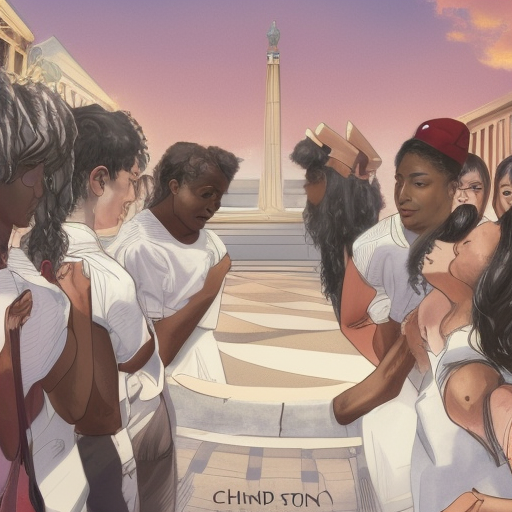
🏅 Top traders
| # | Trader | Total profit |
|---|---|---|
| 1 | Ṁ3,083 | |
| 2 | Ṁ496 | |
| 3 | Ṁ437 | |
| 4 | Ṁ400 | |
| 5 | Ṁ106 |
People are also trading
@PeterWildeford I was thinking along the lines of whether the decisions in the case would extend to other Universities similar to Harvard and UCLA. Would have preferred to review and clarify this interpretation earlier. Still undecided how to resolve this:
- My intent when I created the market.
- My interpretation of the words of the market today.
@SolomonSia you are the ultimate decider here. Nobody will overturn your decision. You can choose Yes, No or N/A and the rationale behind it is just yours.
Of course feel free to discuss with market participants. This is just the overall Manifold policy.
My preference is for people to capture the intent of the market when created if they don't add description to the market which means I think this should resolve Yes.
That said, I also prefer very well formed questions with clear criteria resolution criteria. I suppose you don't have that here but I still bet anyway and is my responsibility.
@SolomonSia What did you intend to mean by “universally”? I had assumed you meant it to cover SCOTUS striking down Harvard and UCLA’s affirmative action but not affirmative action per se
@SolomonSia I feel as though "universal" is pretty explicit language -- and a ruling that comes with carveouts and/or caveats, no matter how stringent, cannot reasonably be understood to be universal
@NicoDelon disagree but I expect this to get N/A'd since market creator is inactive and there is disagreement
@MarcusAbramovitch you disagree because you think 'universal' is consistent with there being exceptions?
@NicoDelon it's at best ambiguous. From C.J. Roberts's majority opinion:
At the same time, as all parties agree, nothing in this opinion should be construed as prohibiting universities from considering an applicant’s discussion of how race affected his or her life, be it through discrimination, inspiration, or otherwise. See, e.g., 4 App. in No. 21–707, at 1725–1726, 1741; Tr. of Oral Arg. in No. 20–1199, at 10. But, despite the dissent’s assertion to the contrary, universities may not simply establish through application essays or other means the regime we hold unlawful today...“[W]hat cannot be done directly cannot be done indirectly. The Constitution deals with substance, not shadows,” and the prohibition against racial discrimination is “levelled at the thing not the name.” Cummings v. Missouri, 4 Wall. 277, 325 (1867). A benefit to a student who overcame racial discrimination, for example, must be tied to that student’s courage and determination. Or a benefit to a student whose heritage or culture motivated him or her to assume a leadership role or attain a particular goal must be tied to that student’s unique ability to contribute to the university. In other words, the student must be treated based on his or her experiences as an individual—not on the basis of race.
@NicoDelon If you were to judge it on that passage alone I would resolve YES but I think @jeremiahsamroo‘s comments here are persuasive for NO
@NiallWeaver yes, the test is strict and narrow, but that is sufficient for the prohibition not to be universal, lest we change the meaning of 'universal.'
@jeremiahsamroo Any exceptions to the Equal Protection Clause’s guarantee must
survive a daunting two-step examination known as “strict scrutiny,”
Adarand Constructors, Inc. v. Peña, 515 U. S. 200, 227, which asks
first whether the racial classification is used to “further compelling
governmental interests,” Grutter v. Bollinger, 539 U. S. 306, 326, and
second whether the government’s use of race is “narrowly tailored,”
i.e., “necessary,” to achieve that interest, Fisher v. University of Tex. at
Austin, 570 U. S. 297, 311–312. Acceptance of race-based state action is rare for a reason: “[d]istinctions between citizens solely because of
their ancestry are by their very nature odious to a free people whose
institutions are founded upon the doctrine of equality.” Rice v. Cay-
etano, 528 U. S. 495, 517. Pp. 9–16.
@jeremiahsamroo they then go on to describe why Harvard and UNCs use of affirmative action is not narrowly tailored and lacks concrete goals, hence must be ruled against, but they do not explicitly wholly ban the use of race in admissions. See this note in the last paragraph
@jeremiahsamroo (f) Because Harvard’s and UNC’s admissions programs lack suffi-
ciently focused and measurable objectives warranting the use of race,
unavoidably employ race in a negative manner, involve racial stereo-
typing, and lack meaningful end points, those admissions programs
cannot be reconciled with the guarantees of the Equal Protection
Clause. At the same time, nothing prohibits universities from consid-
ering an applicant’s discussion of how race affected the applicant’s life,
so long as that discussion is concretely tied to a quality of character or
unique ability that the particular applicant can contribute to the university
@jeremiahsamroo my understanding is that universities can use race in individual cases as long as it is truly individual and tied to their ability to positively contribute to the campus community. Quota or target systems are banned. Using it as an automatic plus factor is banned. However, universities can consider it in individual circumstance when they have a compelling interest.
@jeremiahsamroo bcs that would be a sufficiently tailored interest. The ruling essentially narrows Grutter and Bakke
@jeremiahsamroo Agreed and I wish @SolomonSia had clarified what they meant by "universally" when I inquired.